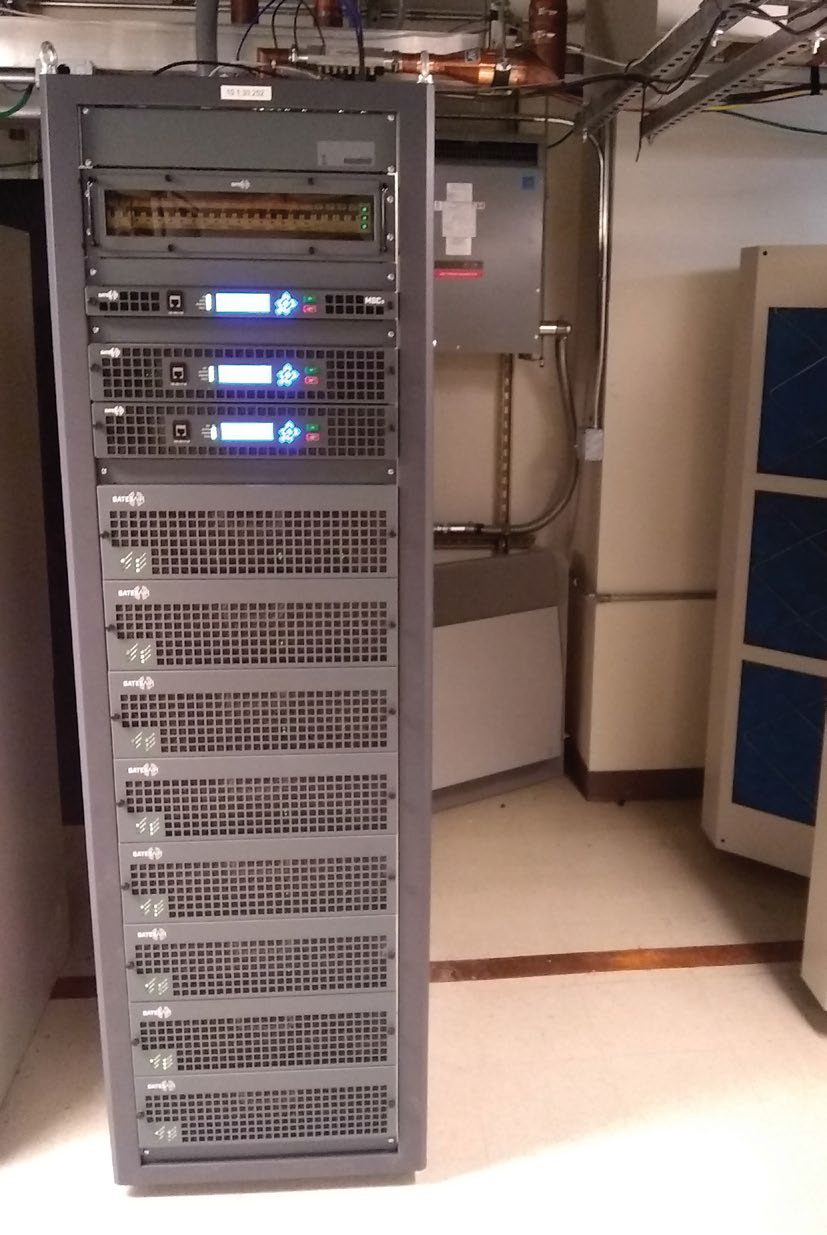WJLP Improves Low-Band Performance Via GatesAir
NEW YORK—While most TV transmission coverage today is about the repack, sometimes a station just needs a new system. Such is the case with WJLP-DT, a low-band VHF broadcaster serving the New York City region on Channel 3 since 2014.

The FCC recently granted an STA for a power increase at WJLP, raising the Me-TV affiliate’s ERP from 7 kW to 15 kW from its current 4 Times Square location, which will become WJLP’s auxiliary site upon moving to One World Trade Center later this year. While the power increase will surely improve low-band VHF reception throughout the region, a thorough evaluation of the existing transmission system was required.
DOUBLE THE POWER, REDUCED COST
Low-band VHF transmitter purchase options are limited, and while the station’s GatesAir Platinum transmitters had served the station well, these are older, less efficient systems. It quickly became clear that WJLP could not achieve the proper balance of power and efficiency using the Platinum series transmitters at the higher ERP. Following an evaluation of two leading vendors, the GatesAir Maxiva VAXTE transmitter emerged as the clear winner.
The Maxiva VAXTE now in service at 4 Times Square is a 10 kW air-cooled model that feeds two redundant three-bay antennas. The VAXTE 10 kW has multiplied efficiency by nearly two-and-a-half times, allowing the station to double the RF power out without raising utility costs. This offers an enormous long-term ROI considering New York’s City’s ever-escalating electricity rates.
Cooling costs will also be reduced—the previous transmitter generated more than twice the heat load of the VAXTE. The Maxiva VAXTE also offers reduced site rental costs due to each transmitter’s much smaller, single rack footprint.
MEETING EXPECTATIONS
Preparing the transmitter for air was a simple process. As a shared transmission space, the grounding, electric infrastructure and air conditioning systems were ready to go. Working with WJLP’s contract engineer, Bill Kirkpatrick, the installation was completed in about two weeks.
Once the lightweight transmitter was in place, Kirkpatrick quickly connected the signal, control, RF and power, and began tests. This included confirming proper voltage and running a dummy load at 150W that was gradually increased to full power over approximately one hour.
The VAXTE is equipped with dual exciters, each with built-in adaptive correction software. Early returns show that a 3.5dB improvement in Modulation Error Ratio (MER), extends the station’s “cliff effect” point to several miles beyond the delivery ring, ensuring that the signal reaches a much broader audience with improved building penetration. This excellent performance means the station could potentially reduce the MER and further increase the transmitter efficiency rating—an option we are exploring. In either situation, WJLP expects the VAXTE to greatly reduce issues with momentary signal loss and pixelization.
The VAXTE design is lean, with minimal, hot-swappable parts that are easy to manage while on air. We have also purchased two additional VAXTE 7.5 kW transmitters, and spares can easily be shared among the three transmitters. The WJLP team looks forward to taking the 7.5 kW models out of storage and putting them on the air at One World Trade Center, where they will serve over-the-air viewers for many years to come.
Robert McAllan is CEO of PMCM TV, which owns WJLP-DT along with other TV and radio stations. He can be reached atbob@pmcmtv.com.
For more information on GatesAir, visit the company’s website atgatesair.com.
Get the TV Tech Newsletter
The professional video industry's #1 source for news, trends and product and tech information. Sign up below.
